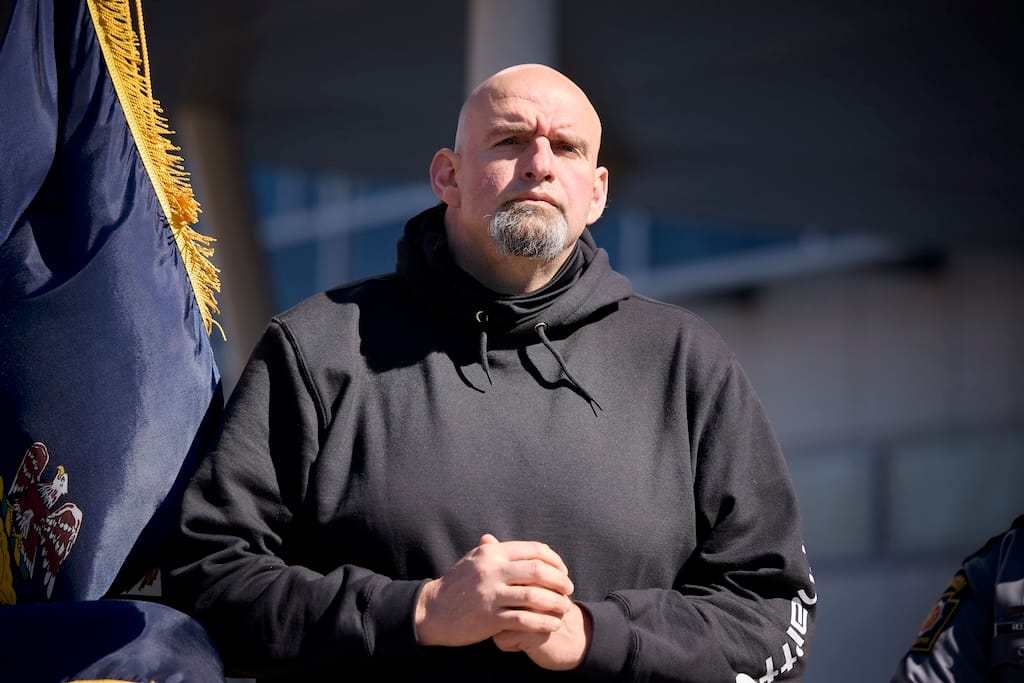Fetterman Introduces Long-Term Universal Service Funding Bill
As full funding for Affordable Connectivity Program expires, FCC Chairwoman Rosenworcel issues letter to lawmakers.
Jake Neenan

WASHINGTON, May 1, 2024 – As full Affordable Connectivity Program benefits expired on Wednesday, Sen. John Fetterman, D-Pennsylvania, introduced a bill that would fold the program into an existing Federal Communications Commission subsidy, and the FCC chairwoman made a final push for a short-term infusion of cash from lawmakers.
Fetterman's bill would tap broadband providers and tech companies to pay for the expansion.
The ACP was stood up in 2022 with $14.2 billion from the Infrastructure Act and provided a $30 monthly internet discount for low-income families through April.
The last of the program’s money will be exhausted this month, with reduced $14 discounts for households whose providers opted into the final month of reduced support. There are 23 million households enrolled in the FCC-run program.
Advocates, lawmakers, and broadband providers have been pushing for months to shore up the program, culminating in a rally yesterday featuring politicians and FCC and White House officials, but legislative efforts have stalled. House Speaker Mike Johnson, R-Louisiana, has refused to allow a floor vote on providing an extra $7 billion for the ACP as his right flank continues to threaten his job over opposition to government spending and some Republicans call the program wasteful.
Yvette Clarke, D-New York, the ACP Extension Act’s lead sponsor, has filed a discharge petition to force a vote on the bill, but the effort would require a majority of the House to sign on and appears stalled amid uncertain Republican support. A Senate Commerce Committee vote on another bill that would provide short-term funding for the program was postponed Wednesday.
Senate Democrats asked ISPs to make up the difference and provide a $16 discount on top of the ACP for May so participants’ bills would not increase. Some smaller providers have committed to doing this, but Charter – the program’s largest participant – is providing its 5 million ACP subscribers an extra $1 if they choose to continue receiving service.
Fetterman's bill folds the ACP into the Universal Service Fund
Fetterman’s bill, called the Promoting Affordable Connectivity Act, would fold the program into the FCC’s Universal Service Fund to protect it from the unpredictability of congressional appropriations going forward. As Fetterman suggested in a November op-ed, the bill would also tap tech companies like Google and Facebook as well as broadband providers to pay into the fund, which is currently funded by fees levied on voice providers.
A working group of lawmakers from both chambers, which does not include Fetterman, has been working on legislation to reform the USF’s contribution base for months as traditional voice revenue shrinks. The fund continues to spend roughly $8 billion annually to subsidize broadband for low-income and rural households, plus schools and healthcare centers.
Commenters to the group have disagreed on whether to turn to tech companies for extra money, with broadband providers generally arguing that so-called edge providers benefit so much from expanded internet access that they should contribute to the fund, and those tech companies pushing to limit any expansion to ISPs.
FCC Chairwoman Jessica Rosenworcel told the working group in January that the USF could likely handle supporting the ACP, but was nervous about potential rate shock if broadband providers were added to the contribution pool. Advocates and some broadband trade groups have disputed how likely it is that consumers would see higher internet bills if ISPs were tapped for USF contribution.
The agency ended up forbearing from collecting USF fees from broadband providers in its recently-approved net neutrality rules, which would make them legally eligible to contribute.
Fetterman says bill would 'ensure costs are not passed on to consumers'
Fetterman’s office said in a statement his bill was “written to ensure costs are not passed on to consumers.” The full text has not yet been released.
Rosenworcel pushed lawmakers for a more immediate solution in her letters Wednesday.
“Additional funding from Congress is the only near-term solution for keeping the ACP going. If additional funding is not promptly appropriated, the one in six households nationwide that rely on this program will face rising bills and increasing disconnection,” she wrote.
She emphasized the disruption the sunset would cause for participants and for the BEAD program, the Biden administration’s $42.5-billion broadband expansion effort, which was set up with the assumption that the ACP would continue. Part of the reason providers support the ACP is that it makes households in low-income and rural areas – places targeted by BEAD – more likely to get and stay subscribed to their service.
“Conversely, by cutting the ACP now it will reduce the number of households that can afford service, raising the cost of networks supported by BEAD funding and threatening our shared goal of achieving internet for all,” Rosenworcel wrote.
She closed with: “Time is running out. Additional funding is needed immediately to avoid the disruption millions of ACP households that rely on this program for essential connectivity are already starting to experience. The Commission stands ready to assist Congress with any efforts to fully fund the ACP into the future.”









Member discussion